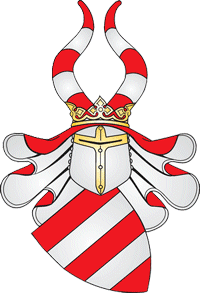
The House of Arnim is the name of an ancient German noble family, originally from Altmark, part of the mediaeval March of Brandenburg. Members of the family occupied many important positions within Holy Roman Empire, Saxony, Prussia, German Empire and the German Reich.

